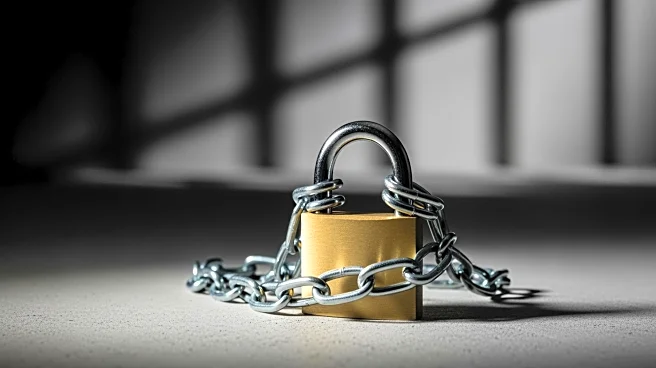What's Happening?
A Ukrainian national, Serhii Kuznietsov, detained in Italy in connection with the Nord Stream pipeline attack, has initiated a hunger strike. Kuznietsov, a military veteran, was arrested in Rimini, Italy,
following a European Union warrant issued by German authorities. He is accused of participating in the sabotage of Nord Stream 1 and 2 pipelines in 2022, which disrupted the Russian-controlled gas supply network. The Italian courts have approved his extradition to Germany, where he faces charges of anti-constitutional sabotage and infrastructure destruction. Kuznietsov's hunger strike, which began on October 31, is a protest against what he claims are substandard detention conditions. He demands better food, equal rights for family visits, and conditions that meet constitutional and international standards. His case is currently under appeal to Italy's supreme court.
Why It's Important?
The case highlights the geopolitical tensions surrounding the Nord Stream pipelines, which have been a focal point in the energy dynamics between Russia and Europe. Kuznietsov's detention and potential extradition underscore the legal complexities and international jurisdictional challenges in addressing acts of sabotage on critical infrastructure. The incident also reflects broader European concerns about energy security and the political ramifications of infrastructure projects like Nord Stream. Poland's refusal to extradite another suspect, citing insufficient evidence and jurisdictional issues, further complicates the legal landscape. The outcome of Kuznietsov's case could set precedents for how similar international incidents are handled in the future.
What's Next?
Kuznietsov's appeal to Italy's supreme court will determine whether he will be extradited to Germany. The decision could influence diplomatic relations between the involved countries, particularly if the court rules against extradition. Additionally, the case may prompt discussions within the European Union about the legal frameworks governing cross-border criminal activities and the protection of critical infrastructure. Stakeholders, including political leaders and legal experts, will likely monitor the case closely, as its resolution could impact future international cooperation on security and legal matters.










